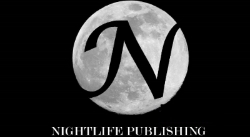My network of friends and associates includes a lot of artists. I know actors and dancers, photographers and writers, comic book artists, comedians, fashion designers, musicians, DJs and filmmakers. All of them bring passion to their craft. Each of them has made sacrifices for the chance to express themselves. I often feel humbled comparing my novels to their work. But the news over the past few weeks has forced me to think about the limits of creative dedication. I wonder how many of us would risk our lives to pursue our art?
The Sony hack over The Interview and the terrorist attack in Paris, are the latest examples of attacks on expression. This isn’t a new phenomenon. Totalitarian regimes, extremists and insecure people of every type and class have used censorship, intimidation and violence to suppress art throughout history. Our perspectives and opinion shape our expression. Those who don’t agree with an opinion and feel threatened by its existence have a tendency to lash out in anger. Every artist risks retaliation the moment they expose their creations to the public.
I don’t expect masked gunmen to kick in my door and shoot me down over the books I write. My current work doesn’t focus on the political or religious maniacs who hide behind AK-47s. Some people might not enjoy my depictions of sexual expression or my attacks on misogyny, but most people don’t care so I’m safe for now. The worst attack I face is a bad review or an inane comment on my wall.
But if I wasn’t safe, would I stop? If I had to risk more than time, money and what little reputation I have, would I give up publishing? If I started getting death threats or survived a real attack, would I keep writing? I can’t answer these questions with any honesty because I’ve never been in those situations. I like to see myself as an artist willing to sacrifice for his craft, but until the moment of truth comes, who can tell?
I don’t know if my artist friends are willing to die for their art, but the relationship between expression and retaliation is inherent in the world we live in. The spectrum ranges from benign online trolling to murder but artistic expression is not a safe lifestyle. We all risk something when we expose ourselves to the world. Maybe the decision to sacrifice security is part of the creative condition. Maybe our passion is what makes us so threatening. I don’t know. But I respect every artist willing to put themselves out there, whatever risks they face. The most respect goes to those who know they are in danger and continue to create in spite of, or perhaps because of the threats against them.
Have fun.
G



